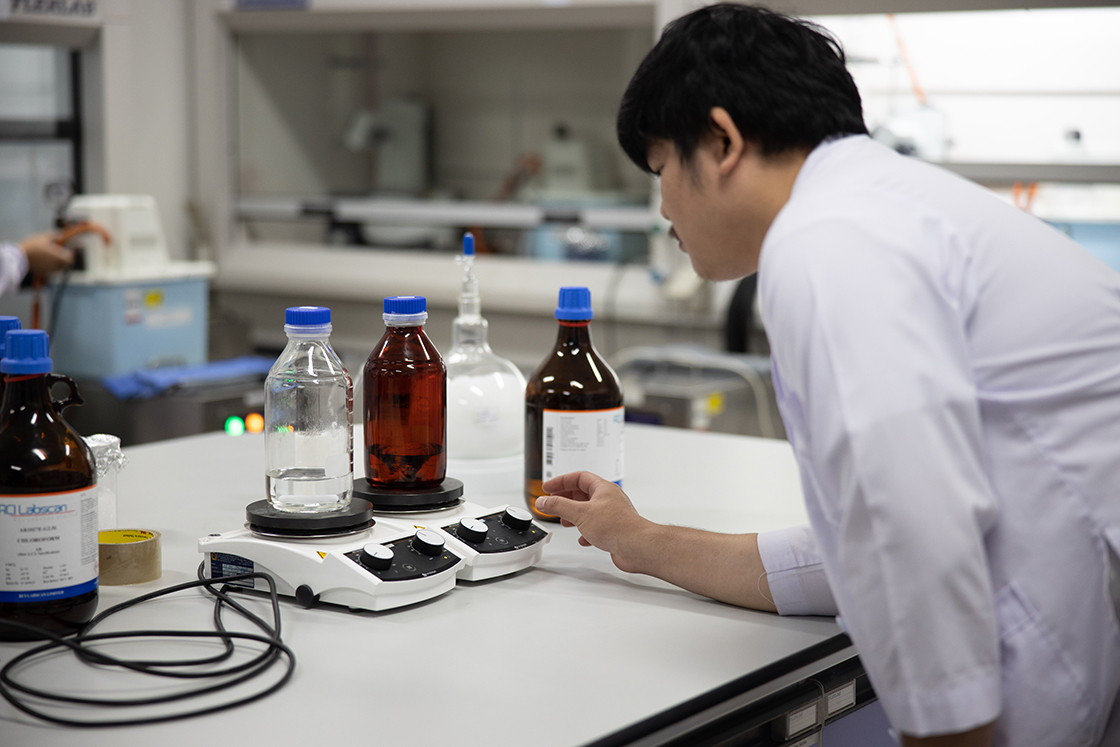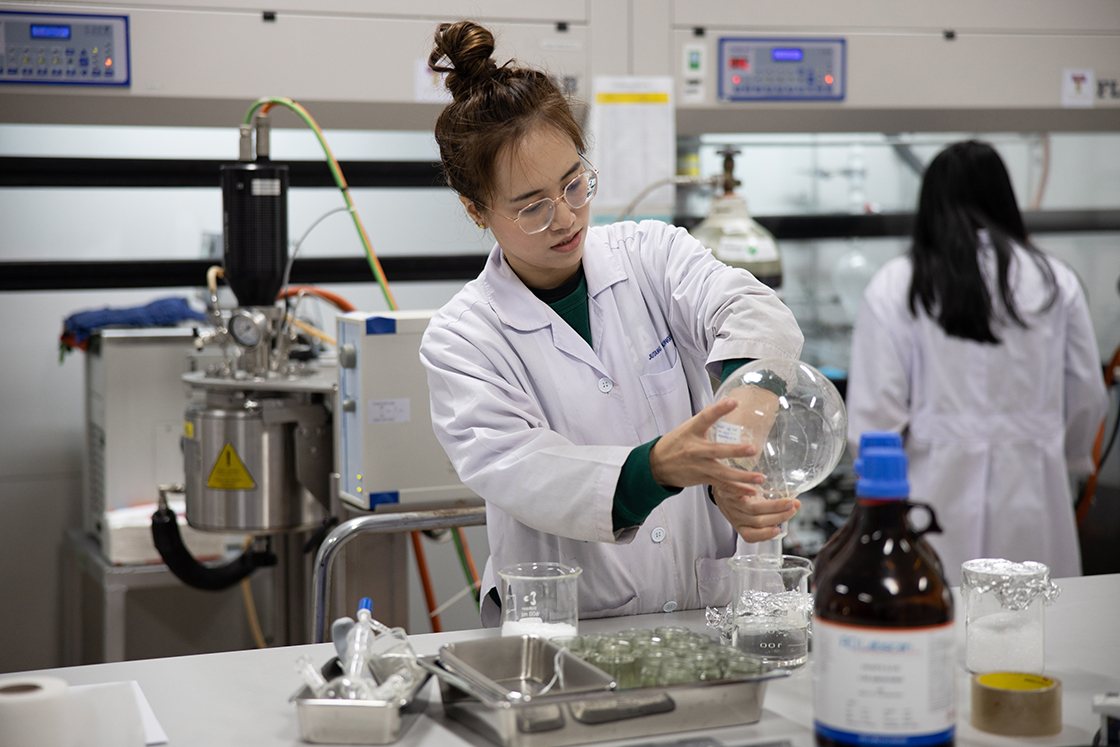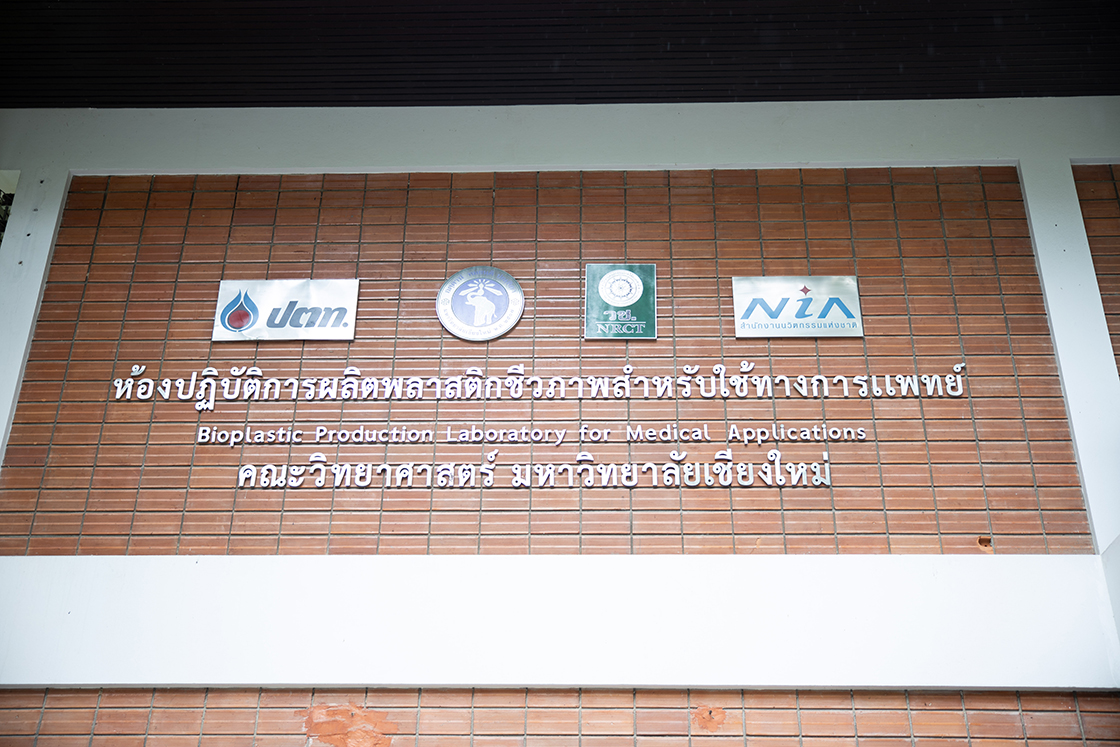After three years of research and development, a team from Chiang Mai University led by Faculty of Science Department of Chemistry’s Assistant Professor Dr. Winita Punyodom, has made a major breakthrough which could greatly benefit the Thai medical industry.
Thailand has long imported much of its medical equipment and tools from other countries, which have added great cost to the medical industry. Dr. Winita’s team, however, had successfully developed biodegradable polyester for medical use, which could be a game-changer in many areas of the industry.
“The chemical polymer research team of Chiang Mai University has long been conducting research into biodegradable polyesters,” said Assistant Professor Dr. Winita. “When I received my PhD I began to work in this area immediately. At that time, the National Research Council of Thailand (NRCT) and the National Innovation Agency (NIA) were working on the Research and Innovation to support Bioplastics Research project, bringing together researchers in the field from across the nation to work on polylactic acid (PLA), or biodegradable plastic, which realty interested me.”
Assistant Professor Dr. Winita Punyodom
“I had known that Thailand imported 100% of its biodegradable plastic pellets,” she continued. “And while at first I was interested in the packaging side of the material – cups, plates, bottles – I realised that because of the need to import the pellets, our costs would always remain high. This was the impetus for this research.”
“I wanted to see our research bear actual fruit, economically, for Thailand,” she continued. “To be able to bear fruit from commerce, we had a meeting and decided that while there are already biodegradable plastic pellets used in packaging in Thailand, there was little used in the medical industry, and that was when we put together the pilot project.”
The project, with the direct aim of researching the use of biodegradable polymer for commerce, was supported by four organisations, both public and private; Chiang Mai University, the NIA, NRCT and PTT Public Company Limited.
“In order to produce medical grade plastic pellets, we had to have standards, producing zero residue, and have very exacting levels of heavy chemicals, water and structure. The pellets also had to be developed in a clean room which we built after the Chiang Mai University donated seven million baht towards construction of the laboratory, the NRCT then donated seven million baht towards its operations, matched by the NIA which gave a further seven million baht in order to achieve various standards, the total cost of 28 million baht was rounded up by PTT’s donation of a further seven million towards scientific equipment. This laboratory is today Thailand’s only laboratory in an educational institution to have received the ISO 13485 (Quality Management System for Medical Device Industry) from the United States’ TUV SUD, a global testing, certification, inspection and training provider.
The research team, which comprised five researchers and five university lecturers, worked for three years in this laboratory, only recently announcing their success in developing medical grade biodegradable polymer. The biomass raw materials come from corn, sugarcane and cassava, using a fast production process resulting in high grade, impurities-free pellets. This green technology not only biodegrades naturally, but also has the potential to support the agricultural industry.
Plastic pellets
“After three years, we can now package and sell these pellets,” said Assistant Professor Dr. Winita. “With the cooperation of the Northern Science Park and the Science and Technology Service Center, Chiang Mai University (STeP) we are now beginning to find channels to sell. PTT has also pledged to set up a pilot factory to mass-produce the pellets for commercial sales.”
“There are so many applications for this technology,” added Assistant Professor Dr. Winita. “Dissolvable stitches, which can be healthily expelled through sweat or urination, is just one application of so many. Without the need to import these pellets from abroad, we are going to cut costs significantly. Our trade name is CMU-Bioplasorb PLA, CMU-Bioplasorb PLC and CMU-Bioplasorb PLG. WE are currently selling our pellets at 78,000 and 90,000 baht per kilograms, which is cheaper than the imported rates of between 120,000 and 200,000 baht per kilogram.”
Biodegradable medical threads

Biodegradable screws
The process from pellet to a viable product is long, warns Assistant Professor Dr. Winita. There are multiple validation verification processes and standards to reach such as FDA approval.
“Everything also needs to be tested by international standards and independent agencies abroad,” continued Assistant Professor Dr.
Winita. “We are soon going to be testing these products on animals such a rabbits and pigs, working with the university’s Animal Hospital. It will take a long time before we can conduct human trials.”
Assistant Professor Dr. Winita says that publishing a research paper is the easy part, the difficulty is in the development of a product resulting from that research that is applicable to the marketplace.
“We researchers know that out of 100 research papers, maybe only one or two actually make it out into real world practice,” warned Assistant Professor Dr. Winita. “If it doesn’t make it, then at least we have trained hundreds of students from under graduates to PhD students, we have worked with many organisations within the government and the private sector who have spent years on this journey with us, so at least we have developed many people, developed the knowledge, developed the curriculum, and developed ourselves. Even if one or two businesses end up using this, I would consider it a success.”



“Chiang Mai University is really supporting researchers these days,” she continued. “The vision and aim is to take what we do in our laboratories, in our fields of research, and apply them for a sustainable future. I really support this strategy of the university’s as it is all about positively affecting people. This will be good for the country, for the Thai medical industry, for the environment as well as for the farmers.”